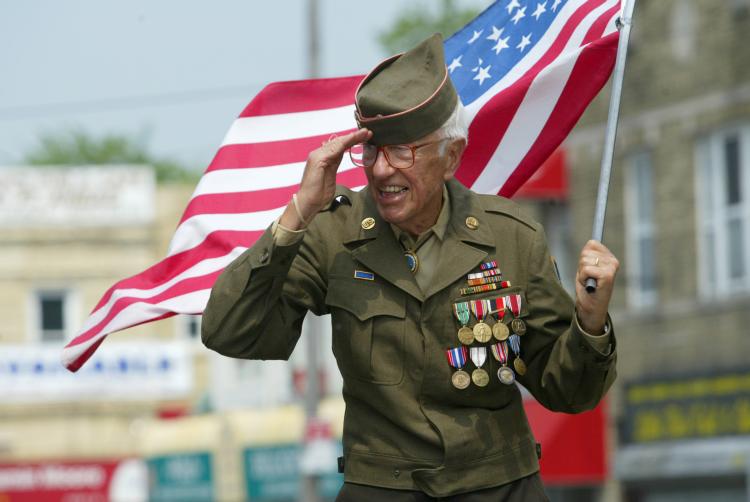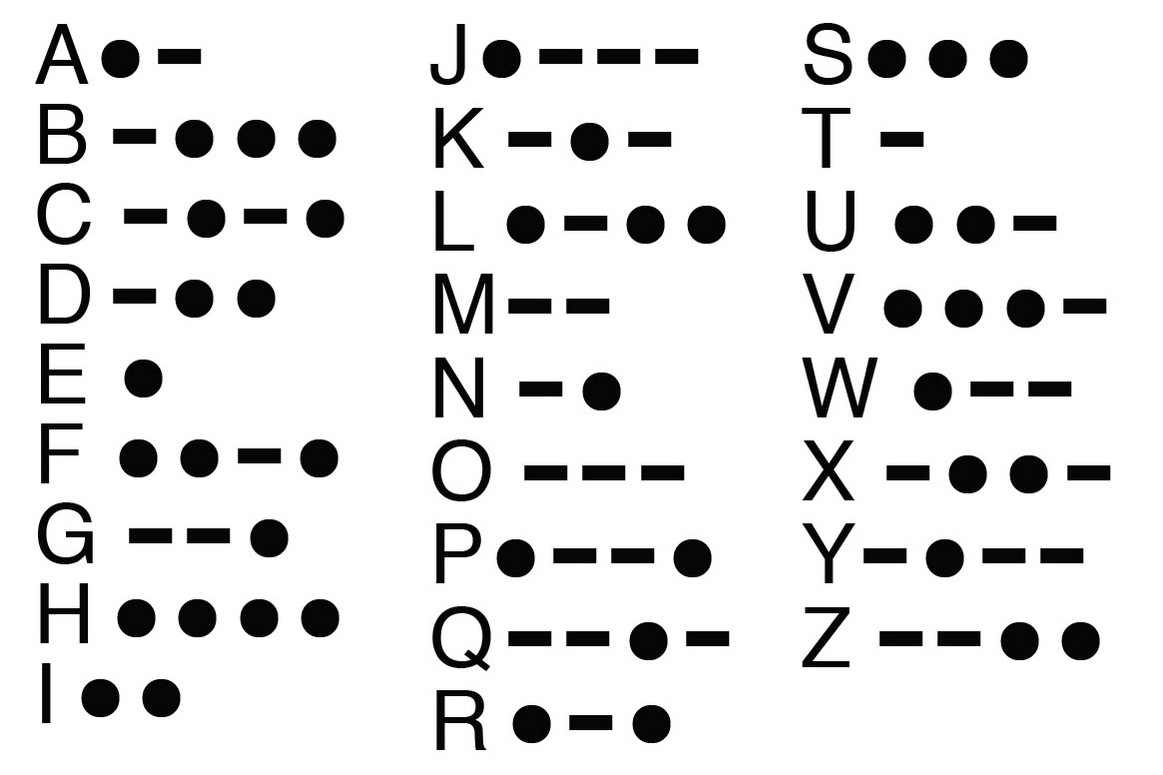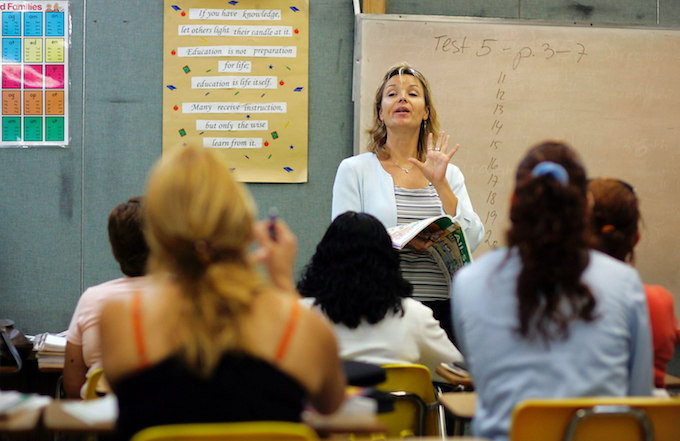Busted
They thought that most of Scouting was lame. Something to keep them off the streets and away from the "negative influences" around town. Neither were good campers. They did not see the need to get outdoors, pop up the tent, roll out the sleeping bags and sleep outdoors. They would rather be inside, playing "Global Combat Seven", a popular multiplayer video game, with some friends playing from Germany and Holland who were not much older than the two 14 year-olds, while chowing down on whatever was in either family's refrigerator or cabinets. Both are Star Scouts, two ranks below the highest rung on the ladder, Eagle. They both have been Star Scouts for a year; normally, it is a four-month wait to earn the various merit badges, participate in the community service project, and be a leader or supporting assistant in some way in the Troop to get the opportunity to earn Life, the next rank. They didn't care. Well, they did not care until the Veteran came to their Scout meeting.
The Veteran
He has a name -- Walter Erb -- and was according to himself, a Chief Petty Officer in the Navy. He looked like a bum, the first time he visited. He was "between jobs" as the pleasantries went. Unemployed. Walter enjoyed the opportunity to stop by the large shed in the backside of Missions United Methodist Church, the weekly meeting location of Troop 41. He enjoyed it because it gave him three hours from being outdoors, something he did not have in common with the other homeless veterans who found it okay to just be hanging out, paper or cardboard signage in hand, panhandling for a few dollars to get them some coffee, or mostly to purchase liquor or cigarettes. There were a few who bought something stronger than that -- drugs -- but not in Walter's part of town. Walter had a knowledge -- made up, the boys were sure of it -- of his massive experiences with Scouting. He said that he was a "lone scout" for a long time because for some reason or another he could not be a member of a Troop. But he says he was a member of "Troop 3" in an adjacent town and worked with other members of the Skinny Petes patrol. He would tell his stories -- as much as he could recall -- during the slow times in the weekly meetings. Even though the stories were basically "tall tales" as several came to a conclusion -- they were great stories and the boys did listen to the older man. For some reason, the Scoutmaster allowed him to tell his stories as long as another adult was sitting there with them. That was my job, to be the "chaperone" of the "Veteran".
Stories
The two boys enjoyed the various stories told by the Veteran. More than that, they loved the demonstrations, the instruction. The Veteran knew all about various signs and hand signals used by Scouts of old. The boys did not know if he found an old Scout handbook and read and memorized the motions and signs, or really knew them based on his youth experiences. Later onward, the Veteran found (he said it was "in his things" which he kept in a box which he stored somewhere...) his "Scout whistle" and lanyard and instructed all of the boys how to whistle, tap or otherwise "sign out" Morse code. I recall in my Scouting days having to learn how to use Morse code as part of meeting requirements for a merit badge. It didn't stick with me because the Troop I was a part of did not practice it enough for me to maintain it. Nathan -- Nate -- and Mark both embraced it. They both learned from the Veteran how to whistle, write and tap the dots and dashes. The Veteran commented at one point, "Morse code is like any other language -- you may never know when it will become useful -- or more importantly, who else understands it too. Think carefully before you send or receive a message." He then talked about World War II and how the Germans learned Morse code and were intercepting Allied messages, wiping out entire units. So the Allies recruited Native Americans -- "Injuns from a tribe" in the Veteran's words -- who "used their own language in code" to send and receive messages. The Germans, the Veteran stated, "didn't have a chance. This is what makes our nation so good...that we have people who speak different voices but are still Americans" he added. Never mind that the Navajo "code talkers" were involved with our fight with Japan, not Germany, during the War. I never corrected him, out of respect for the old man. After all, he was sort of correct in his description of the importance of such special "language".
Morse Code
The two boys put it to usage -- not in a Scout context, as in competing against other units to see who would get the message first. Or who would send the message the fastest… Nate and Mark used their newly learned coding "skills" to send personal notes and comments to each other in class! When one of their notes were intercepted by the Science teacher, who did not understand the dots and dashes but knew they were "up to something", sending them to detention at the end of the day, the two boys resorted to tapping their pencils onto their desks to send quick notes back and forth.
"Leslie", Mark would tap to his friend. "Open skirt". "Cannot see" Nate would tap back. "Lucky you. Color" "Black" Mark would tap back. "Cool," Nate would respond tapping back. They would send private notes about their classmates and teachers, as they were in four of the six classes during the day. They agreed to not to tap out answers to tests or quizzes although it was tempting -- and easy -- to do so. Nate and Mark got so great at Morse code that they were asked to lead classes at Scouts. It also gave them ideas on how to help other kids outside of Scouts after Mark saw a television program about Braille. He saw how words could be printed on raised paper in that language so that those who are blind would be able to read books and newspapers.
"What if we created a dit-dash punch so that all people would have to learn is Morse code?" Mark asked his friend one afternoon during lunch. "Cool idea -- but how would we make such a thing?" "Okay. All we need are two hole punchers. One with a regular punch and the other with an oblong one. They make them punch holes in paper for like, lanyards and things," Nate said. "Then we would teach people that the oblong holes were "dashes" and the round holes were "dots". " They asked Nate's dad to take them to an office warehouse store to buy the hole punchers and a ream of paper. They came back to Nate's house to punch out sample messages -- "Hi, how are you?", "Where is the post office?", "Men's room please" and similar type simple messages. They brought them to the next week's Scout meeting and showed the other Scouts what they did.
"So what's the difference between this and Braille?" one of the Scouts asked. "You're still blind but at least with Braille, you don't have to read over holes."
"The difference, " said Mark, "is that it is easier to teach Morse code, and it is more universal. You have to go to a special school to learn how to read and understand the raised dots...with this, all you need to remember are holes and Morse code."
The Substitute teacher
The two continued to use Morse code over the winter in several of their classes, tapping out and now sending notes composed of holes in the sides of pieces of paper which would be balled up and tossed or rolled to the other. Nobody knew the wiser.
Until one morning in which a substitute teacher arrived at Mark and Nate's classroom. Mark forgot his hole punchers that day, so they agreed to go back to writing their notes with pen and paper. The teacher had them for half of the day, starting after lunch, and observed the two passing back and forth notes. Actually, they would write the note using dots and dashes, ball the paper up and toss it to the other, who would find it on the floor or occasionally caught it with his hand. The other would unball the paper and "read" what the first would send. He would add his notes to the paper, ball it back up, and toss or roll it to the first. Mark tossed his note too far and it hit Rissa Taylor on the side of her thick, long brown hair. It stuck there until the sub teacher -- Gail Martin -- saw it and removed it from Rissa's hair. "New hairstyle?" she asked the student, knowing what the answer was. "No. Someone tossed it over here and it found my head," the young lady answered. "Oh, I see. And were you expecting this to happen?" the teacher asked, unballing the wadded paper. "No," Rissa responded. "Got it." The teacher returned to her position at the front of the classroom. The teacher read the note. There was silence as she looked up and scanned the room. "Okay. Who is Debby?"
Debby, sitting on the first row in front of Mark, raised her hand. "According to this, you have toilet paper on your left foot." The teacher looked down and then confirmed the contents of the message. Then she looked at the rest of the "conversation" and read, "No matter. Somebody still thinks you're cute and wants to ask you to Neil's party on Friday." Debby blushed a little and emoted a small giggle. Others joined in.
"How do you know what that paper says?" a student on Mark's end of the classroom asked aloud. "Well," the teacher placed the paper on the desk and looked at the class, "a long time ago, I was in Girl Scouts. Back then, we were a bit, um, progressive. We camped, cooked, hiked, and even went swimming in a large lake. But what I loved to do the most was to send Morse code messages by flashlight to the girls from Newbury, Mass -- we lived in Norcross, Georgia back then and their campsite was across the lake from ours. I never met Norma or Gina or Donna," she said, looking around the room and then concluded, "they never met me nor Marcie Raymond, my tentmate that summer. But we had a GREAT time talking with each other. " She then walked over to where Mark was sitting. "THIS, guys, isn't summer camp. You," pressing her balled fist on Mark's desk, then using it to tap out a word, "and you over there," looking at Nathan "need to see me after class please.""What did she tap on Mark's desk, Nate?" the boy behind Nate's desk asked.
"Busted."



.jpg)

